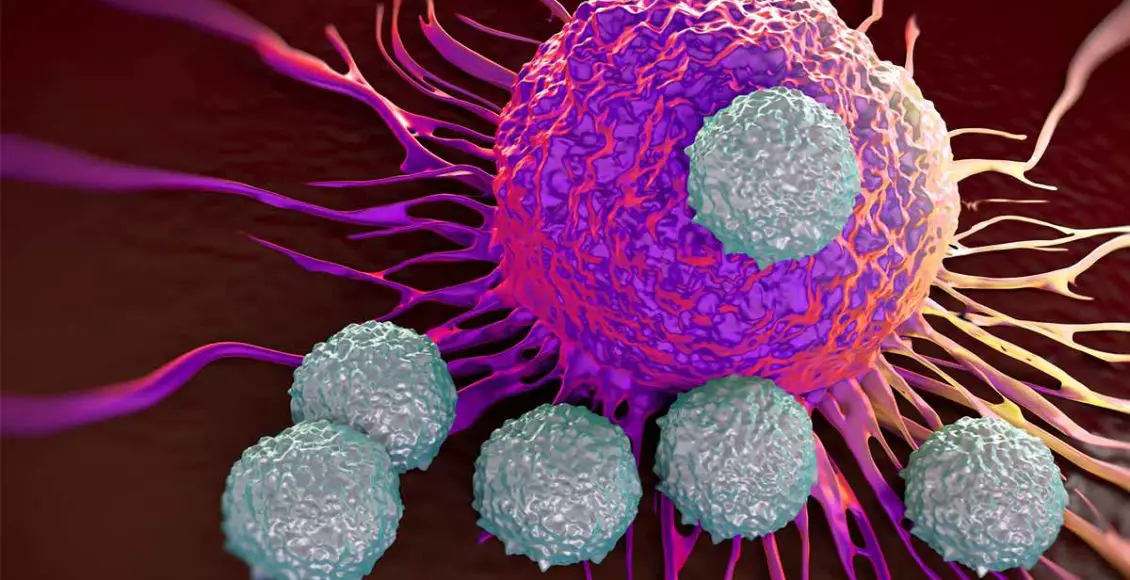A new-found part of humans’ immune system may be used to treat all cancers, according to scientists.
A research team of Cardiff University discovered a new method of killing different types of cancers, such as prostate, lung, and breast cancer. Although their work is still in its early stages, scientists say it’s very exciting.
The Cardiff experts’ discovery has been published in Nature Immunology. It is still not tested in patients, but researchers believe it has “enormous potential”.
By its nature, our immune system is what protects our bodies from infection. What’s more, it also attacks cancerous cells. What the experts were looking for was “unconventional” and previously undiscovered ways the immune system naturally attacks tumors.
Their grand discovery was a T-cell inside people’s blood. This immune cell can scan the body and detect whether there is a threat that needs to be eliminated. The difference is that the T-cell could attack a wide spectrum of cancers.
Scientists are hopeful their findings may treat every cancer.
The researcher Prof. Andrew Sewell told BBC:
“There’s a chance here to treat every patient. Previously nobody believed this could be possible.
It raises the prospect of a ‘one-size-fits-all’ cancer treatment, a single type of T-cell that could be capable of destroying many different types of cancers across the population.”
The way T-cells work is identifying the cancerous cells with the “receptors” on their surface, which allow them to “see” at a chemical level. The scientists from Cardiff found that a T-cell and its receptor could detect and kill a wide range of cancerous cells. They believe they found a possible cure for lung, skin, blood, colon, breast, bone, prostate, ovarian, kidney, and cervical cancer.
Their idea is to take blood samples from a cancer patient. Furthermore, their T-cells would be extracted and then reprogrammed to make the cancer-finding receptor. So far, the research has been tested only in animals, and on cells in the laboratory.
Scientists are aware that more safety tests need to be made before human trials could start.
Besides, they still explore the exact way T-cells work. What they have acknowledged so far is that the T-cell receptor interacts with a molecule called MR1. This molecule is on the surface of every cell in the human body and is thought to be flagging the distorted metabolism going on inside a cancerous cell to the immune system.
Garry Dolton, a member of the research team, claims:
“We are the first to describe a T-cell that finds MR1 in cancer cells – that hasn’t been done before, this is the first of its kind.”
It is a well-known fact that T-cell cancer therapies already exist. Moreover, the development of cancer immunotherapy is one of the most exciting advances in the field.
The Cardiff team strongly believes their T-cell receptor could lead to a “universal” cancer treatment.



